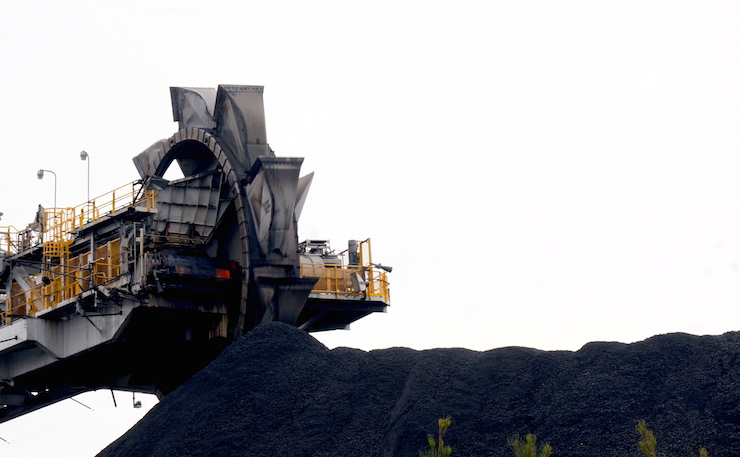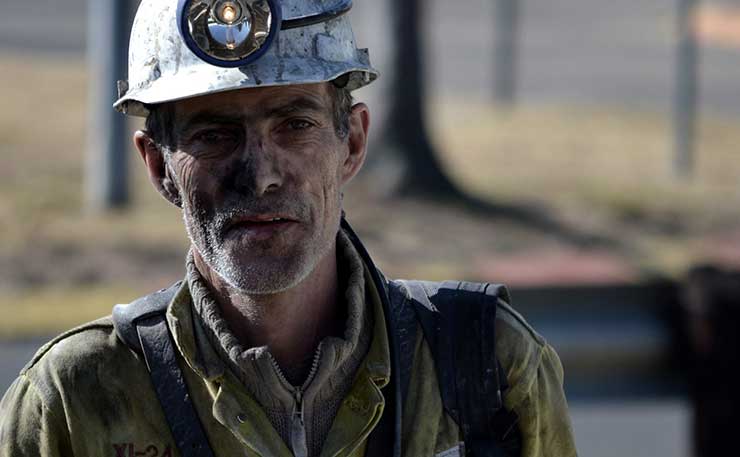A clean energy future is on the horizon, but without proper planning it will also deliver social decay and the loss of livelihoods and entire communities, writes CFMEU president Tony Maher.
What we have seen this week with almost 1,000 jobs lost at the Hazelwood power station is more than a wake-up call for national policy makers in Canberra.
You only have to look at the energy security challenges highlighted in South Australia since the closure of Alinta’s Port Augusta coal fired power station to understand the impact of this change, not to mention the industry and workforce fall-out.
Industry restructure planning is something we as a nation have never done properly – especially in respect of workers. The electricity sector in Australia has been changing for a very long time. We had 9 per cent growth in energy generation in the 1960s, 7 per cent in the 1970s, 5 per cent in the 1980s, 3 per cent in the 1990s and it dipped into negative territory in the last five years.
These changes are because of long-term economic restructuring around the services industry, new energy efficient technology. The changes are accelerated by a range of climate change and clean energy policies.
In response, no new coal-fired power generation has been built since 2007 and companies like AGL have been clear that they are pulling future investment in new coal-fired power.
Yet we have no real plan in place for a ‘just transition’ for workers and communities like the Latrobe Valley affected by this change.
Climate Policies can achieve ‘Energy Transition’ with or without Justice. Ignoring the impact on workers may suit some people who are solely focused on the emissions outcome. It may also suit some business leaders who like to remind us of the terrible consequences of stranded assets and investment uncertainty.
It doesn’t suit the thousands of workers and their communities who face certain unemployment, the destruction of communities and generations of social crisis.
This week, both the Federal and Victorian State Governments announced a pool of $80 million dollars to address the point. But both governments have missed the point of a national strategy completely.
There’s an opportunity to keep many of those people in the region and in the industry with a package that offers workers in existing power stations an opportunity to retire, and thus free up positions for those people who need to stay in the sector.
We must not only confront the issue of stranded assets, but of stranded workers and stranded communities. Without a transition plan, multi-generational unemployment and an explosion of social dysfunction will become a reality – it is indeed already a reality in some parts of Australia.

What this proposed package would achieve is a transitional phase where workers who need to can stay, and those who want to leave, are supported to do so.
The most successful and pertinent example of a successful transition plan is that of the German Coal Mining industry. Between 1990 and 2018 the German hard coal industry will have shed 130,000 staff. This was achieved by employers, unions and government accepting a shared responsibility for finding redeployment opportunities or the funding for early retirement.
As mines closed, workers who didn’t retire were redeployed to other mining operations. This continued until mining opportunities were exhausted and alternative jobs were then found. Most importantly training was provided before retrenchment.
Workers at closing mines and power stations can be redeployed to ongoing mines and power stations. It’s possible that many older workers will opt for retirement after receiving a redundancy package.
The number of vacancies can be enhanced by offering voluntary redundancies at the ongoing operations. In other words you pool voluntary redundancies across a sector or a region. Taking this approach you minimise the additional training requirements during the early stages.
Funding is certainly a big challenge, but how that money is spent is also important. It’s increasingly hard to get money out of the public purse, and the private companies leaving the industry either can’t pay or won’t pay.
There are ideas around for firms to bid to close their power station assets, with those bids including the social costs. The winning bids would be paid for by a levy on retail electricity prices.
If we can have renewable energy targets that effectively place a levy on all retail electricity, then we can also have levies that cover the social costs of electricity industry restructuring.
The Jotzo ANU paper from October 2015 was a very welcome first effort to integrate social costs into electricity sector restructuring costs. He used a figure of $150 million in social costs to close one power station in the Latrobe valley – $50 million for the community and $100,000 per worker. We think that’s very much on the low side if it properly funds early retirement and redeployment.
Last November I met the local union President of the last German coalmine. He told me they have 700 employees and the mine will close in 2018. They had good jobs organised for 500 already in November last year. They had a mere 200 further jobs to find out of 130,000 redeployed or retired workers.
The cost can be shared. Communities can be saved. There can be a Just Transition.
Our mining and energy workers have fueled Australia’s industrial and economic development, often paying a great price in loss of life. We have a proud past and we want to make sure mining and energy workers have a fair and secure future in any transition and the CFMEU has a dog in the fight to make sure we get it.
Donate To New Matilda
New Matilda is a small, independent media outlet. We survive through reader contributions, and never losing a lawsuit. If you got something from this article, giving something back helps us to continue speaking truth to power. Every little bit counts.





